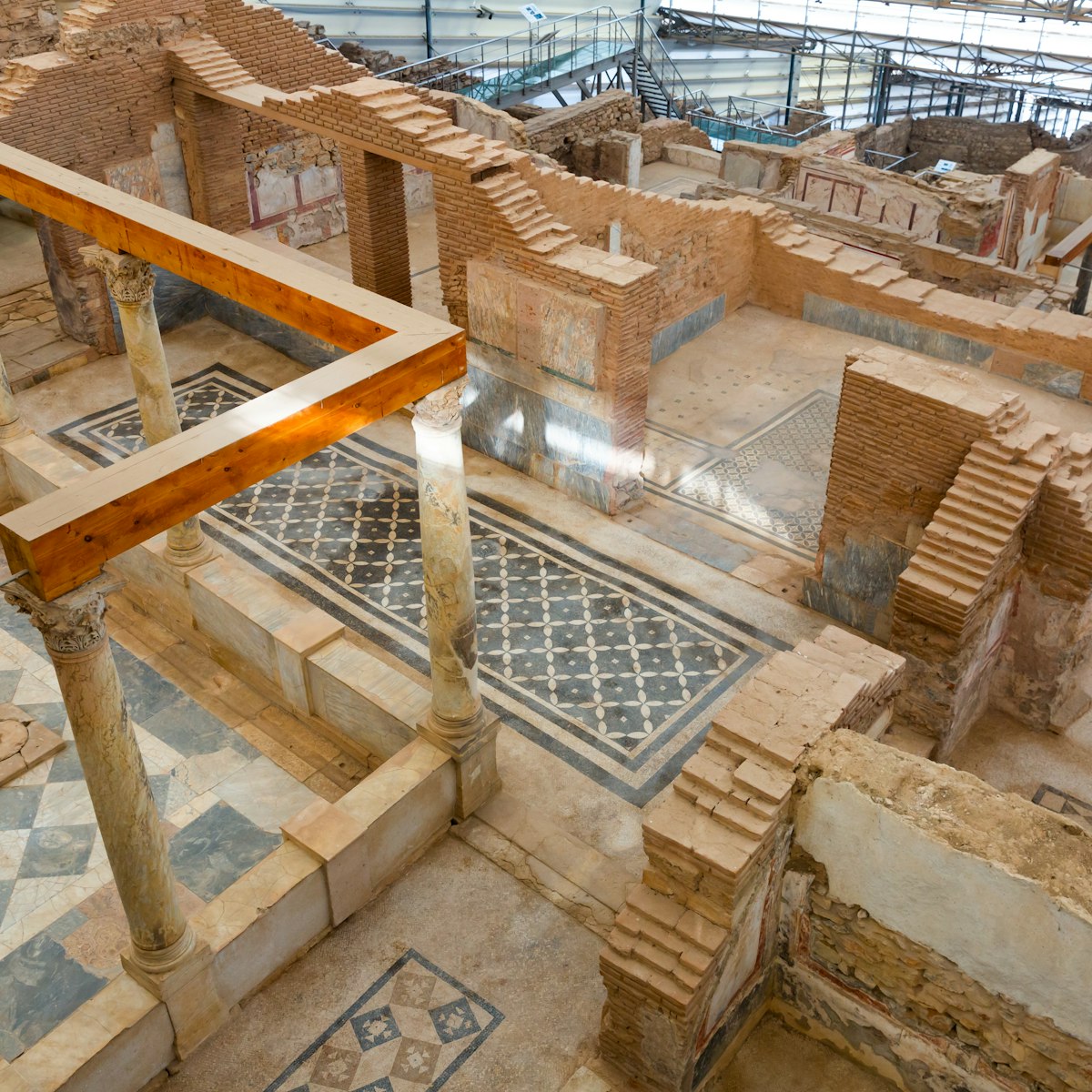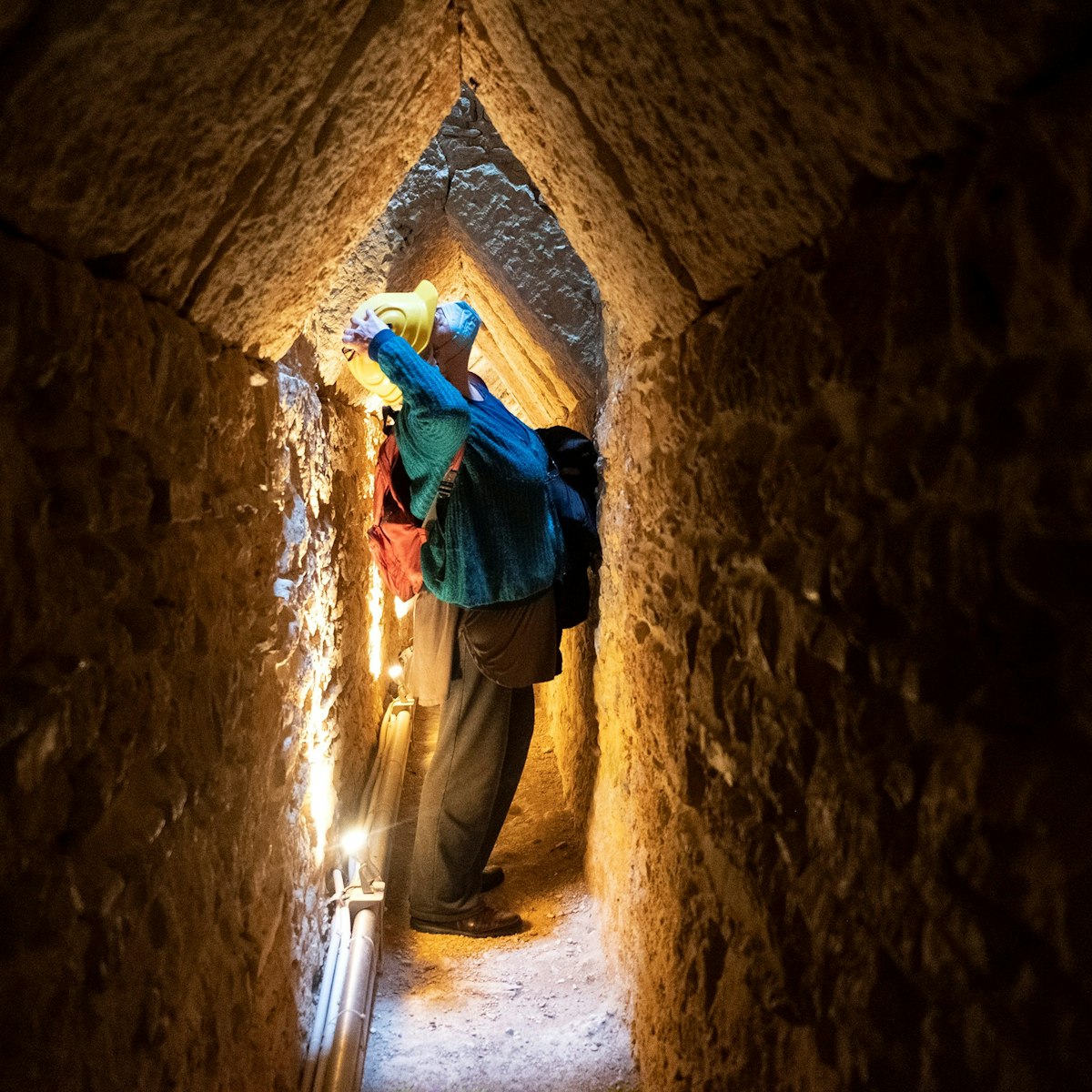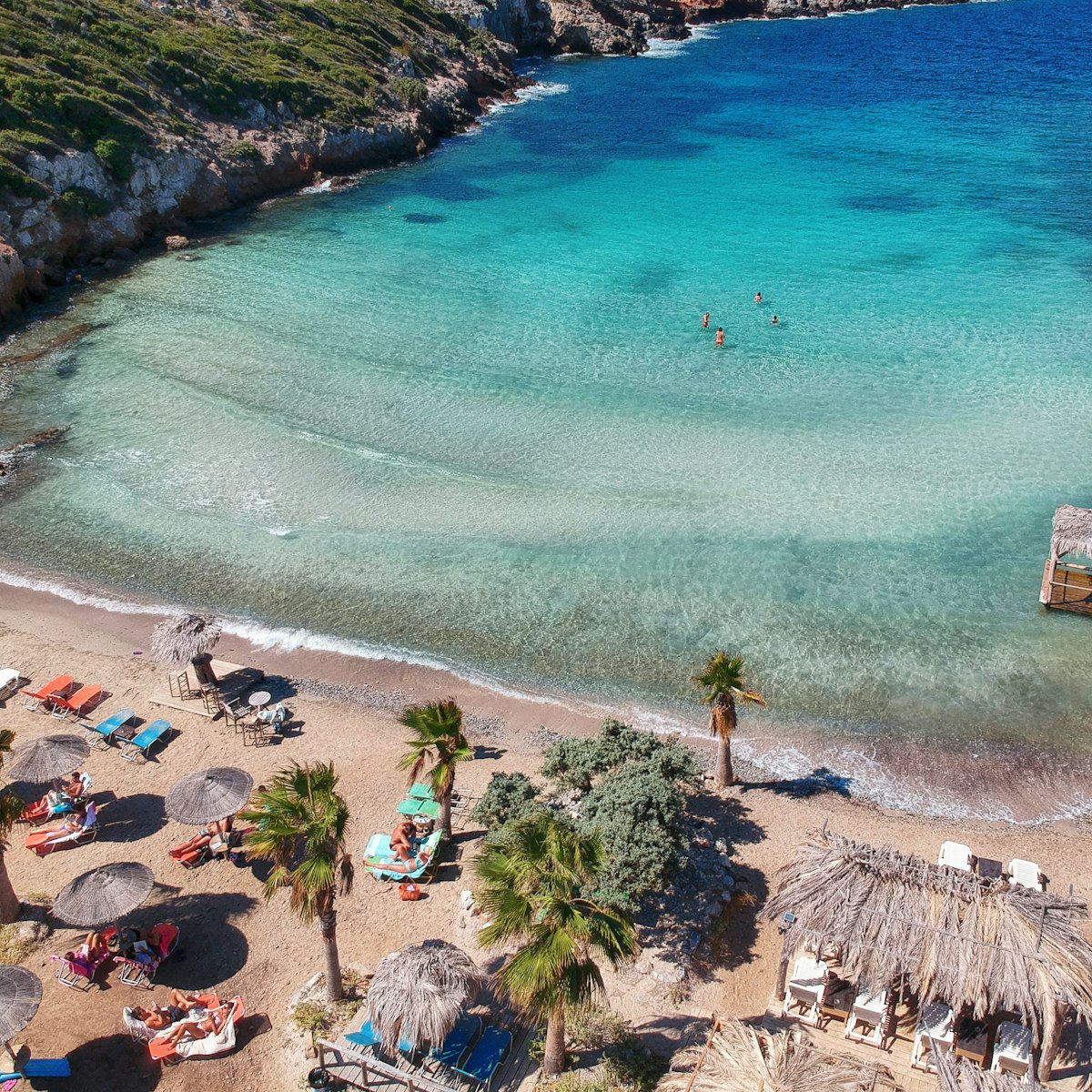Built around AD 150, this once-lavish 1400-seat theatre boasts marble seats with lions' paws and other carved ornamentation. It was used primarily for lectures and musical performances but, given its location next to the Upper Agora, it almost certainly also functioned as a 450-seat bouleuterion (council chamber) for matters concerning city government. It is still used for musical performances.
Ephesus had one of the ancient world's most advanced aqueduct systems, and there are signs of this in terracotta piping for water along the way to the building. The holes that appear intermittently at the top were used to unblock the pipes.





